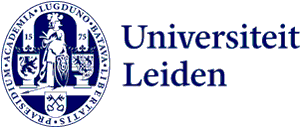
Sibel Bahtiri is one of the new Faces of Science: ‘I want to show how we’re finding alternatives to animal testing’
PhD candidate Sibel Bahtiri is one of the new Faces of Science. In videos and blogs, she will show what life is like as a young researcher.
Bahtiri is ‘very excited’ to have been chosen as one of the new Faces of Science. ‘It is a true honour to represent PhD candidates and share with the public what it is like to be a young researcher. I hope to inspire younger students to consider a career as a scientist and make an impact.’
Drugs can have adverse health effects but so too can chemicals in our food or in nature. Laboratory animals are often used to research this. ‘I am trying to find alternatives to animal testing in chemical regulatory safety assessments’, says Bahtiri. ‘We are looking into human-based cell culture models that represent specific organs, in my case the liver and kidney. In my project, I am mostly working on validating these cell culture models to ensure their accuracy in predicting human health risks for certain drugs and chemicals.’
In the coming year, Bahtiri hopes to provide insights into the life of a young scientist and to make the general public aware of the societal impact of her research. ‘People are concerned about animal welfare in science, or the health risks of chemicals found in nature, and I want to share what scientists are currently doing to tackle these challenges.’
Isabelle Pirson
Like Bahtiri, Isabelle Pirson too is a new Face of Science. She conducts research at the Leiden University Medical Center (LUMC) on the ethics of new biotechnologies. Gene therapy offers hope for a treatment for people with Duchenne muscular dystrophy. But what are the ethical issues surrounding this development? For instance, participation in gene therapy research and the high costs involved. Pirson is researching the responsible development of this therapy and who should be involved.
Faces of Science is a network of PhD candidates who ‘give science a face’ in blogs, vlogs and presentations. Dozens of PhD candidates blog about their research, science and life as a scientist on FacesofScience.nl. They show how wide-ranging science is and hope to inspire and engage young in science. Faces of Science is a Royal Netherlands Academy of Arts and Sciences (KNAW), The Young Academy and NEMO Kennislink project and is funded by the Lira Foundation.
